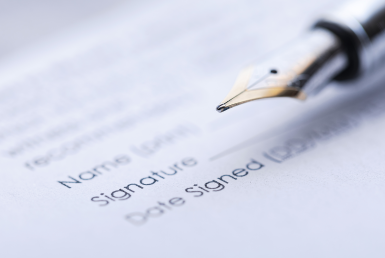Things First-Time Buyers Need to Know When Buying a House

Buying your first home is exciting, but it can also be a really daunting experience. Your joy can be overshadowed by concerns about debt, making the right choice, and many other factors come into play. With the current economic climate, it’s easy to become overwhelmed. Owning your own home opens a world of possibilities. Here are some tips for buying your first home so that it can be the most seamless and painless experience possible.
1. Decide what you can afford
To commence your house hunting with confidence, decide on your earnings and drawings to ascertain what you can afford. It is demoralising looking at properties that fall outside of your budget. It is recommended to obtain a pre-approval from a financial institution before you start your search as this makes your negotiation stronger at the point of making an offer on a property. Online bond calculators are free on a variety of sites to help you to make a decision on your affordability.
2. Factor in the extra expenses
These are plentiful. With your Offer to Purchase you are usually required to have up to a 10% deposit and registration costs, transfer duty, the Conveyancer, Deeds registration fees and possibly a bond cancellation on your existing property, if this is not your first purchase. Add to this your removal costs, rates and taxes, pool and other maintenance costs, expenses that you may have overlooked.
If you are buying an apartment or a sectional title, banks say that you are within your rights to request the body corporate’s financial statements to ensure that the property is well managed and is in good financial standing with its creditors. “It’s also a good idea to find out if there are any special levies pending,” says Standard Bank. “A special levy is a tariff charged in addition to the regular levy over a fixed period. These funds are collected from owners to pay for big investments such as security upgrades, painting, or significant maintenance. An impending special levy will impact your costs in the short term,” the bank says.
3. Save for a deposit (if you can)
You automatically have a higher chance of getting a bond approved if you have enough money saved as your deposit. A deposit means your bond repayments will be lower per month – as a rule, your monthly bond repayment should not exceed 30% of your gross monthly income, so lowering this is beneficial. You’re also in a better position to negotiate a better interest rate as there is a lower risk for the bank if you have a healthy deposit.
4. Check your credit score
Your credit score is calculated by the credit bureau based on your financial history such as your debts, income, and other financial obligations. The bank checks your credit score when you apply for a home loan. The higher your credit score, the better your chance of the bank granting you the loan. It is important information to have before commencing your house hunt, as this may give you time to improve your credit score if it’s too low.

5. Know what you’re getting into
Buying a house is an emotional decision, be careful not to let the emotion overshadow practicalities. Look for signs of damp, structural cracks, sagging roofs, location, and security etc. If you are unsure about any of these issues, consider hiring a home inspection services company to inspect the property before you place your offer. These inspectors will be able to check for dangers including structural damage, water seepage, and damp. Specialists will be able to find faulty electric issues, inspect plumbing and gas installations, and detect rotten timber or hazardous materials such as asbestos, lead-based paint and toxic moulds.
6. Follow the estate agent’s lead with caution
Trust your gut. The Estate Agent will have in their possession a Condition Report that the Seller is required to sign providing an accurate account of the state of their home. If you have doubt over any of the clauses, check these all before committing yourself.
7. Gauge your needs
Property is a long-term investment so consider your present and future needs. Find a neighbourhood that offers your desired lifestyle. Check proximity to hospitals, schools, work and shops. Decide on your space such as the minimum number of bedrooms, bathrooms, parking bays, and garden space. Find out the cost of monthly rates and taxes, if there is fibre attached to the property. etc. All these factors matter when deciding on your lifestyle.
8. Do your due diligence
Your home is the space that you will exist in for a long time. Taking ownership of your new home means you need to understand not only the legal aspects of registering your bond and transferring the property to your name but making it a successful and painless process that ensures you begin your new life in your new home on a positive note.
FAQs:
What is the main thing to consider when buying a house for the first time?
Consider what you can afford, whether you have a deposit, and what your credit score is.
What is the minimum deposit for first-time buyers?
The minimum deposit generally required by lenders is 5% – meaning the other 95% of your property’s purchase price will require a loan.




